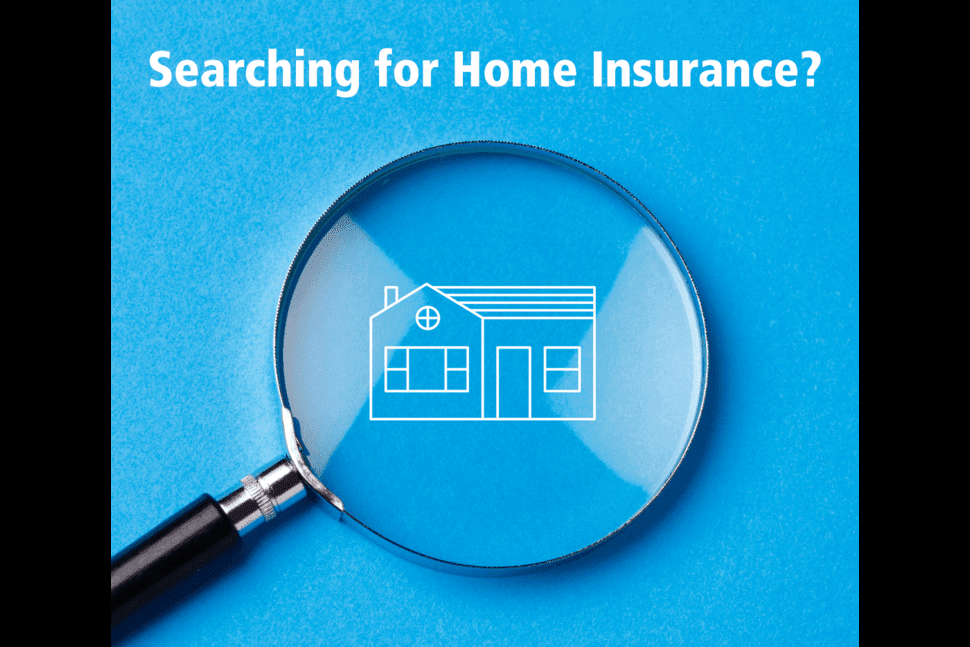
Mobile Home Roof Maintenance
June 5, 2023
Prepare For Hurricane Season
June 18, 2023Homeowners insurance (also known as home insurance) is a necessity. Home Insurance protects your home and personal property against damage or theft. Mortgage companies require homeowners to keep their home insured, this is a contractual obligation and condition to lending money against the home which is held as collateral.
If you rent a home or an apartment, most landlords require tenants to maintain a renters insurance policy and list the landlord as an ‘Additional Insured’ on the policy. Whether there is a contractual or legal requirement or not, protecting your interests is just common sense. Insurance offers protection to return you to whole following an unforeseen loss.
KEY pointers
- Homeowners insurance policies usually cover destruction and damage to a dwelling (home), damage to personal property, and personal liability for negligence claims.
- Three basic valuations of coverage exist: actual cash value, replacement cost, and extended replacement cost of the dwelling.
- Premium rates are determined by the insurance company’s risk that you’ll file a claim; the risk is assessed based on past history associated with the customer, the home, the neighborhood, and the home’s condition.
- When purchasing a policy, a homeowner or renter should obtain a quote and investigate a few different deductible and coverage options to match the expected coverage to the premium rate generated.
What’s Covered by a Home Insurance Policy?
Homeowners insurance policies have many standard elements that outline the coverage provided by the carrier, there will always be some customizable options to better match the coverage to the desires of the homeowner.
Damage to the Dwelling (House)
In the event of damage due to fire, hurricanes, lightning, vandalism or other covered disasters, your insurer will compensate you so your house can be repaired or even completely rebuilt. Destruction or mutilation from floods, earthquakes, and poor home maintenance is generally not covered; a separate policy may be available for that type of coverage. Freestanding garages, sheds or other structures on the property may be covered as ‘Other Structures’ on the same policy.
Personal Property including clothing, furniture, appliances, and other contents of your home are covered if they’re destroyed in an insured disaster. A small percentage of the Personal Property Coverage is usually included if ‘Away from home’.
Fine art, antiques, fine jewelry & designer items may only be covered with an additional itemized schedule or rider itemizing the desired items to be covered. In some cases, if the homeowner has extremely expensive/luxury items, it may be necessary to purchase a separate policy to cover those items.
Personal Liability for Damage or Injuries
Liability coverage protects you from lawsuits filed by others. This clause even includes your pets! So, if your dog bites your neighbor, Doris, no matter if the bite occurs at your place or hers, your insurer will pay her medical expenses. Or, if your kid breaks her Ming vase, you can file a claim to reimburse her. And if Doris slips on the broken vase pieces and successfully sues for pain and suffering or lost wages, you’ll be covered for that, too, just as if someone had been injured on your property.
While policies can offer as little as $100,000 of personal liability coverage, experts recommend having at least $300,000 worth of coverage, most companies offer $100,000, $300,000 or $500,000 of coverage; very few companies actually offer $1 Million personal liability limit. Additional protection (usually up to $5 Million additional) can be purchased separately with an umbrella policy.
Hotel or House Rental While Your Home Is Being Rebuilt or Repaired
In the event your house is not suitable for living due to a covered loss, your ‘Additional Living Expenses’ coverage will either pay short term hotel stay and expenses or if long term, the rental of similar home until the covered damage is repaired or rebuilt. This coverage will also reimburse for incidental costs you incur while waiting for your home to become habitable again.
Types of Home Insurance Coverage
There are different types of Homeowners Insurance Policies, however, the most common is the Form HO-3 (Special Form), this is a named peril policy and as expected will have an exclusion section. The least costly homeowners insurance will likely give you the least amount of coverage, and vice versa. The industry has standardized forms HO-1 through HO-8, many of these are not commonly used by insurance carriers.
There are essentially three levels of coverage.
Actual cash value
Actual cash value covers the replacement cost value minus depreciation
Replacement cost
Replacement value policies cover the actual cash value of your home and possessions without the deduction for depreciation, so you would be able to repair or rebuild your home up to the original value.
Extended replacement cost
Most insurers offer an extended replacement, meaning it offers more coverage than you purchased, but there is a limit; usually 20% to 50% higher than the limit.
It would be advisable not to purchase an Actual Cash Value policy, depreciation could be a substantial part of the reimbursement needed to repair damage to your home. In fact, preferred insurance companies will no longer issue an Actual Cash Value policy, it isn’t a good idea for anyone wishing to insure their property unless left with no choice.
What’s Not Covered by Homeowners Insurance?
While homeowner’s insurance covers most scenarios where a loss could occur, some events are typically excluded from policies, such as Earthquakes, Flood & Acts of War.
If you live in a hazardous flood zone or hurricane area, you would most likely be able to purchase a separate Flood Policy, Wind & Hail Policy or other catastrophic loss. As always, home insurance companies do offer a few additional endorsements such as: Water Backup Coverage, Identity Theft, Personal Injury and some other items which vary from state to state.
How Are Homeowners Insurance Prices Calculated?
All insurance companies use Actuaries to calculate risk; many different factors are taken into consideration to calculate the premium rates for homeowners insurance. The premium is primary based on the likelihood a homeowner will file a claim, not the homeowner’s perception that they will never make a claim.
Insurance is there to pay claims and each state only allows a small percentage as the maximum permitted underwriting profit from premium collected, it is the ultimate goal of insurance companies to reach that small percentage of profit and at the same time maximize the volume of insured homes as long as the region generates profit.
Some of the factors affecting premium may be; Prior Losses filed in previous 5 years, Local crime rate, Homeowners Insurance Credit Score (used in states where permitted), Type of Construction, Age of Home, Security Systems, Sprinkler/Fire Suppression Systems and more…
In addition to the above factors, there is a separate consideration of items that may exclude the carrier from accepting to insure the home; proximity to geographic risk, homes not in good maintenance, unacceptable animals, etc…
Insurance Saving Tips
While it never pays to nickel and dime insurance companies, there are ways to reduce homeowners insurance premium.
Install a security system and subscribe to a monitoring service.
A central station reporting alarm system will dispatch either Police or the Fire Authority, insurance companies offer a premium credit for this level of protection. In most areas, companies offer a 5–10 % discount for proof of a centrally monitored alarm system.
Home Insurance companies require Smoke Alarms, Dead Bolts & Fire Extinguishers for all homes, although this is a requirement in order to insure the home, most insurance companies automatically offer approximately 2% discount.
Raise your deductible
Similar to all other types of insurance, homeowners insurance offers a lower premium for higher deductible options, and vice versa. Over the years that premium has gradually risen, homeowners have opted to choose a higher deductible in return for a lower premium. It is always a good idea to think of insurance as a catastrophic safety net rather than a ‘Fix-It Checkbook’; having said that, consumers are better off saving the premium, buying a higher deductible and self-insuring small claims.
Review your policy annually
It is important to remember that the coverage is the primary reason for buying homeowners insurance; your goal should be to maximize coverage but then perhaps take a higher deductible to reduce the premium to your budget and desire. It would make no sense to reduce your coverage or necessary options in order to pay a lower premium, this would defeat the purpose of buying home insurance.
It is a good idea to review your coverage once a year, perhaps before renewal time in order to assess whether your needs have changed in any way.
For example, if you have recently installed a monitored alarm system, it would be a good time to contact your insurance company and let them know to offer you a discount; or perhaps you paid off the mortgage, you’d ask your insurance company to delete the mortgagee clause.
In some states, insurance companies are allowed to offer a Loyalty Credit, this would mean that you’d get a discount for longevity with an insurance carrier.
How to Select Your Home Insurance Company
When looking for an insurance carrier, here’s a checklist of search tips.
- Compare statewide costs and insurers
When it comes to insurance, you want to make sure you are going with a provider that is legitimate and creditworthy. Your first step should be to visit your state’s Department of Insurance website to learn the rating for each home insurance company licensed to conduct business in your state, as well as any consumer complaints lodged against the insurance company. The site should also provide a typical average cost of home insurance in different counties and cities.
- Check the Company’s financial health
Investigate home insurance companies you’re considering via their scores on the websites of the top credit agencies (such as A.M. Best, Moody’s, J.D. Power, Standard & Poor’s) and those of the National Association of Insurance Commissioners and Weiss Research. These sites track consumer complaints against the companies as well as general customer feedback, the processing of claims, and other data. In some instances, these websites also rate a home insurance company’s financial health to determine whether the company is able to pay out claims.
- Look at claims response
Following a large loss, the burden of paying out-of-pocket to repair your home and waiting for reimbursement from your insurer could place your family in a difficult financial position. A number of insurers are outsourcing core functions, including the handling of claims.
- Current Policyholder Satisfaction
Every company will say it has good claims service. However, cut through the clutter by asking your agent or a company representative the insurer’s retention rate—that is, what percentage of policyholders renew each year. Many companies report retention rates between 80% and 90%. You can also find satisfaction information in annual reports, online reviews and good old-fashioned testimonials from people you trust.
- Get Multiple Quotes
Although many consumers want to get a quick quote online and go with it, it is more beneficial to speak to a company representative, ask their opinion and request some slight variations so that you can either save some more money or uncover an overlooked item which only someone with routine experience would bring to light. Perhaps, 3 quotes with different deductibles, or finding out the difference in premium for maximizing the Personal Liability limit.
- Look beyond price
The annual premium is often what drives the choice to purchase a home insurance policy, but don’t look solely at price. Since there are small differences between all carriers, you will never get a true apple to apples comparison, it is most important to first figure out what your goal is when buying a new policy. Companies usually have different deductible options, a different way of calculating the dwelling replacement cost and many times, different endorsement options.
- Talk to a Real Person
Speaking directly to an insurance company representative would be the best way to get a true feel for whether to buy a new policy or not. If you wish to speak to an Independent Agent who represents more than one company or perhaps a wholesaler who processing business for several carriers, you’d more likely be guided to the best carrier option to meet your goal.

